Corals – The Hidden Foundation of Marine Life
In Nusa Penida, tens of thousand of visitors visit Manta Point in Nusa Penida, Bali. But behind every manta ray, mola mola, or school of reef fish lies a hidden truth: without coral reefs, none of these creatures could survive. Coral reefs provide homes to the baby fish to hide from predators, or host the species that these iconic species feed on.
Ocean Gardener has been working with the local fishermen community, Nuansa Pulau. Together, we have been planting over 200,000 corals at the Ped restoration site in Nusa Penida alone. Our work is not just about conservation and restoration, it’s also about strengthening the pivot to the eco-tourism economy through snorkeling, freediving and diving. By working with the local fishermen community to replant the reefs, we have fostered a huge sense of pride and ownership. Healthy coral reefs are the true foundation of Nusa Penida’s identity.
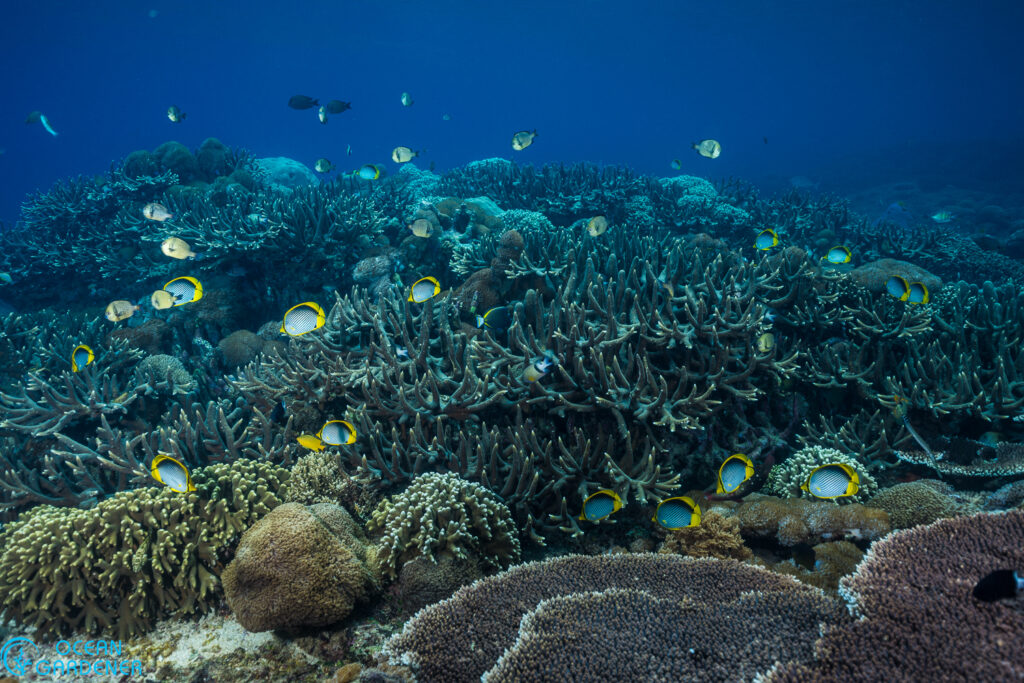
Why We Installed Mooring Buoys in Nusa Penida
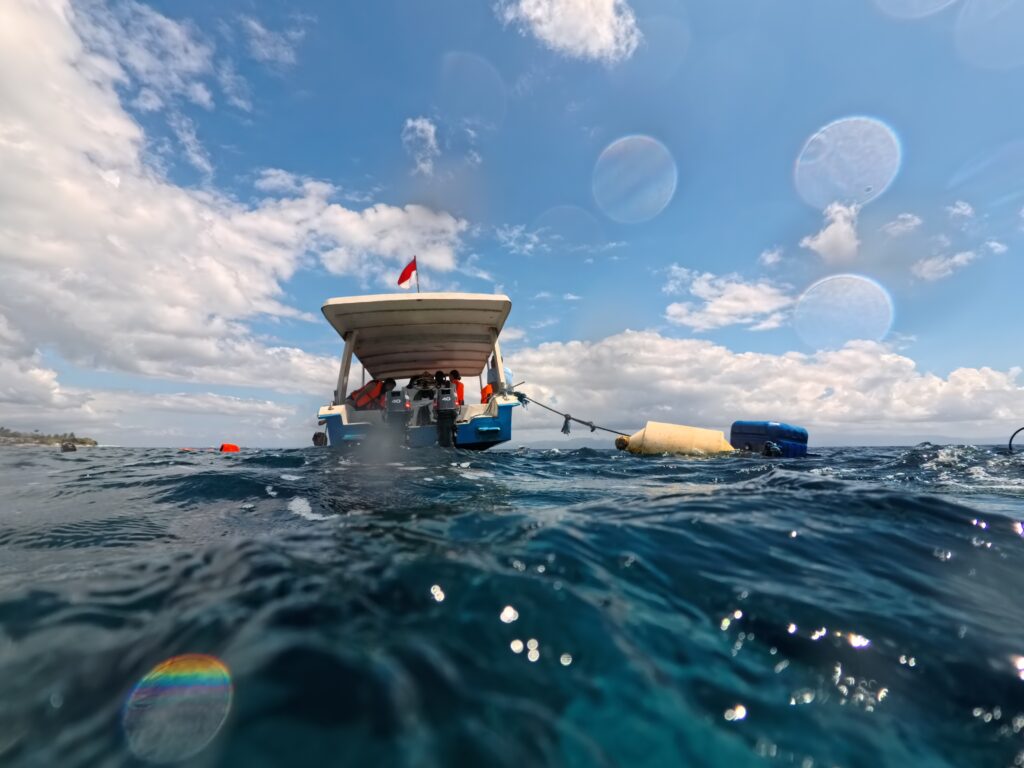
To protect this restoration site, we installed mooring buoys. These are fixed anchor points that boats can tie themselves to. Their purpose is simple but crucial: to provide safe parking for boats without dropping anchors. In a Marine Protected Area like Nusa Penida, anchoring is strictly prohibited because it destroys the coral reefs. Remember, some corals grow very slowly and mechanical damage like this takes years or decades to recover, or sometimes not at all. This was the case in Ped. It was just a rubble field as years of bad anchoring practices reduced the reef to tiny dead pieces that roll around in the surge. Corals larvae had nowhere stable to attach to regrow.
When Marine Conservation Efforts Turn Into Challenges
At first, we installed the mooring at a depth of 6 meters at high tide and 4 meters at low tide. This turned out to be too shallow and posed a risk. When scuba divers fall backwards from the boat to enter the water, they crushed the fragile coral. Hence we moved it to a depth of 10–11 meters, a safer location for both the reef and boat activities.
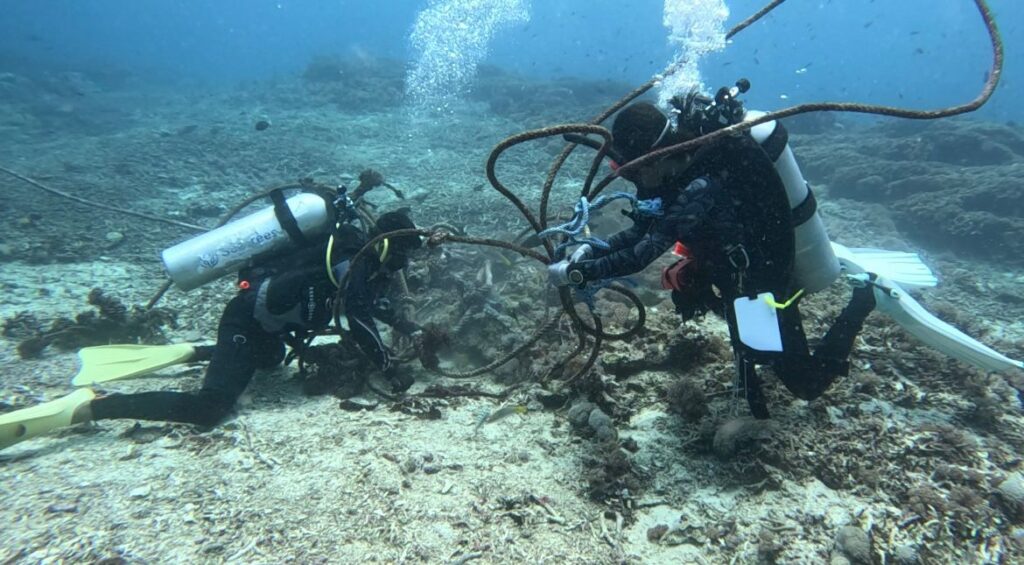
Unfortunately, the mooring buoy was repeatedly moved back into shallow water, ending up directly on top of the corals we had planted. Within days, many of the corals we had carefully nurtured were broken, ropes snapped, and several colonies overturned.
A Difficult Decision: Removing the Mooring
We didn’t give up. We tried several times to relocate the mooring buoy back to the correct spot, fixing the ropes and making sure it was properly installed. Yet, each time we repaired it, the buoy was moved back into the shallows. This repeated interference only caused more coral damage.
In the end, with heavy hearts, we made the final decision: to remove the mooring buoy entirely. It was not an easy choice, because our goal was always to support both conservation and the marine tourism industry. But protecting the corals — the very base of life in Nusa Penida — had to come first.
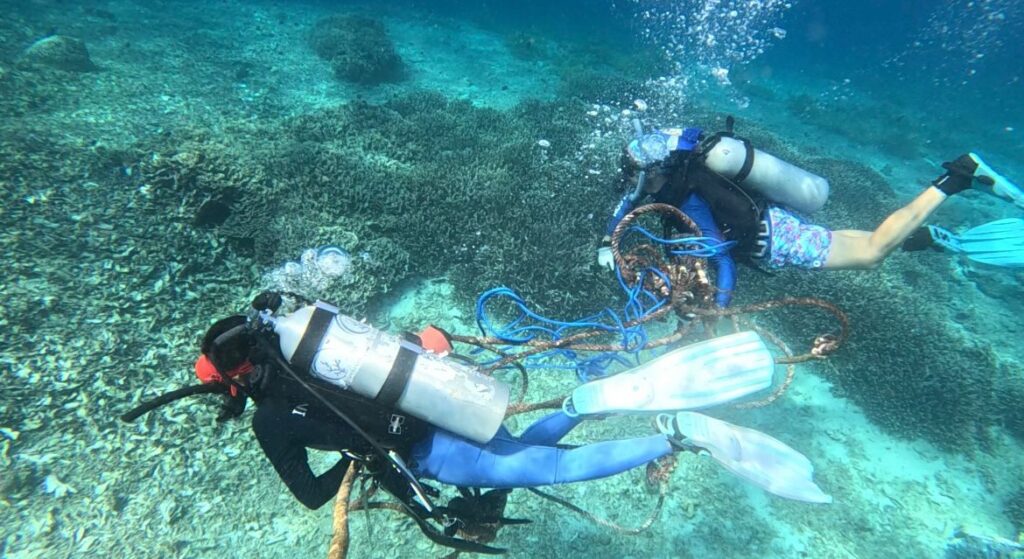
Two Days After: The Unintended Consequence
Only two days after we removed the mooring, we continued our regular monitoring and noticed something even more concerning: boats began parking dangerously close to the reef, especially during low tide. Without the mooring, some operators chose convenience over caution, putting even more pressure on the very ecosystem we’re trying to protect.
This shows how deeply interconnected everything is: conservation, tourism, and community awareness. The mooring buoy was meant to be a solution, but without shared responsibility, even the best intentions can fail. Are we returning to bad anchoring practices that will once again destroy the reefs that all these operators now rely on.
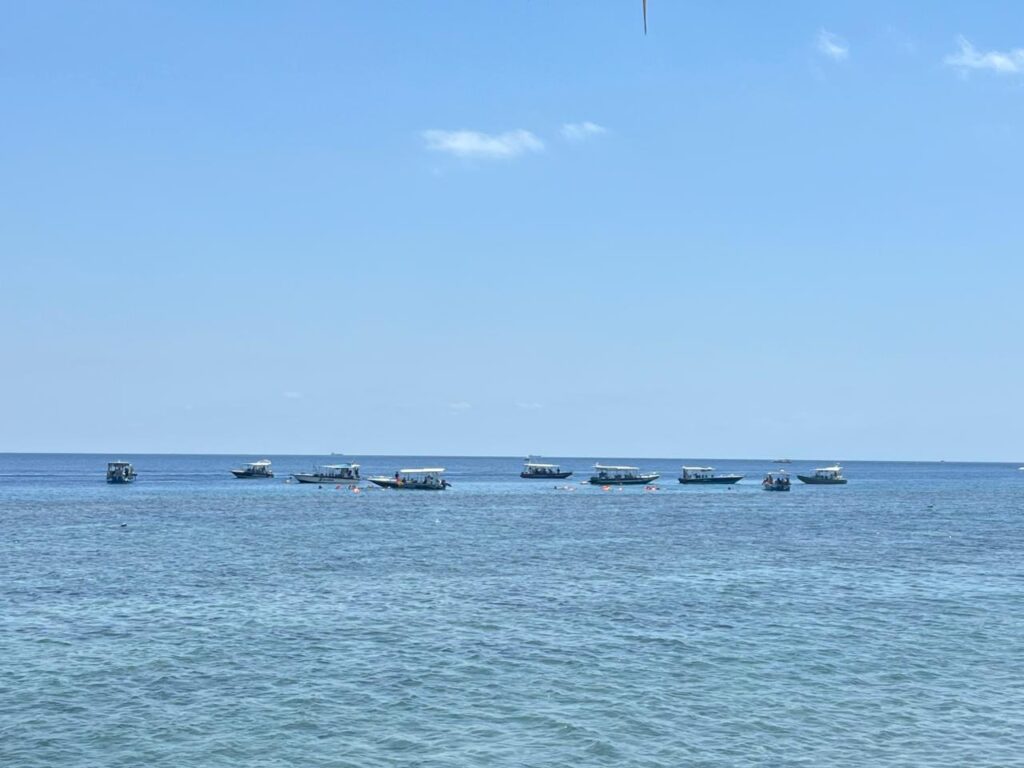
Why Coral Reefs Matter for Everyone
This loss is not just ours as marine conservationists. It is a loss for the whole ecosystem and for the community that depends on it. Coral reefs are home to countless species — from small reef fish to larger predators, from cleaner fish that help manta and mola, to the biodiversity that supports snorkeling and diving.
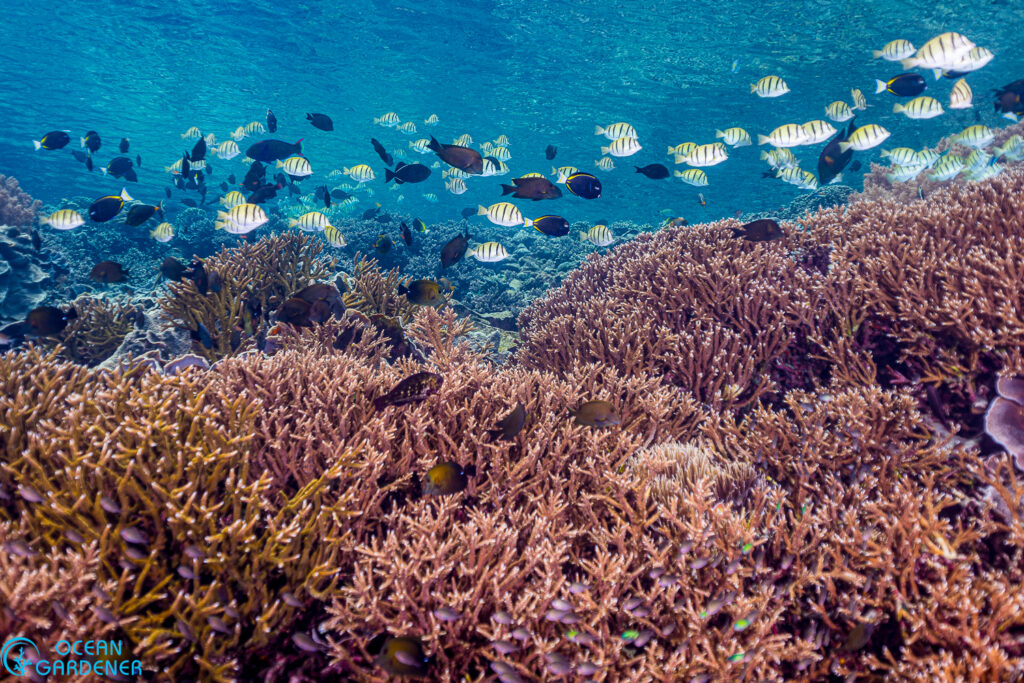
Beyond marine life, corals protect coastlines from erosion, provide food security for local communities, and sustain the tourism economy that Nusa Penida depends on.
A Call for Shared Responsibility – Ped Community Watch
What saddens us most is that this has happened before in Ped, Nusa Penida. The reef was destroyed and left as rubble. We hope by posting this, we can bring awareness and hopefully reach the people responsible for constantly relocating the mooring bouys and also the wider business and boating community in the Ped community.
Let’s not let history repeat itself. The local community has fought so hard to bring back the reefs and it is now a central part of the Nusa Penida economy, let’s not make the same mistakes that reduced the reefs to rubble before.

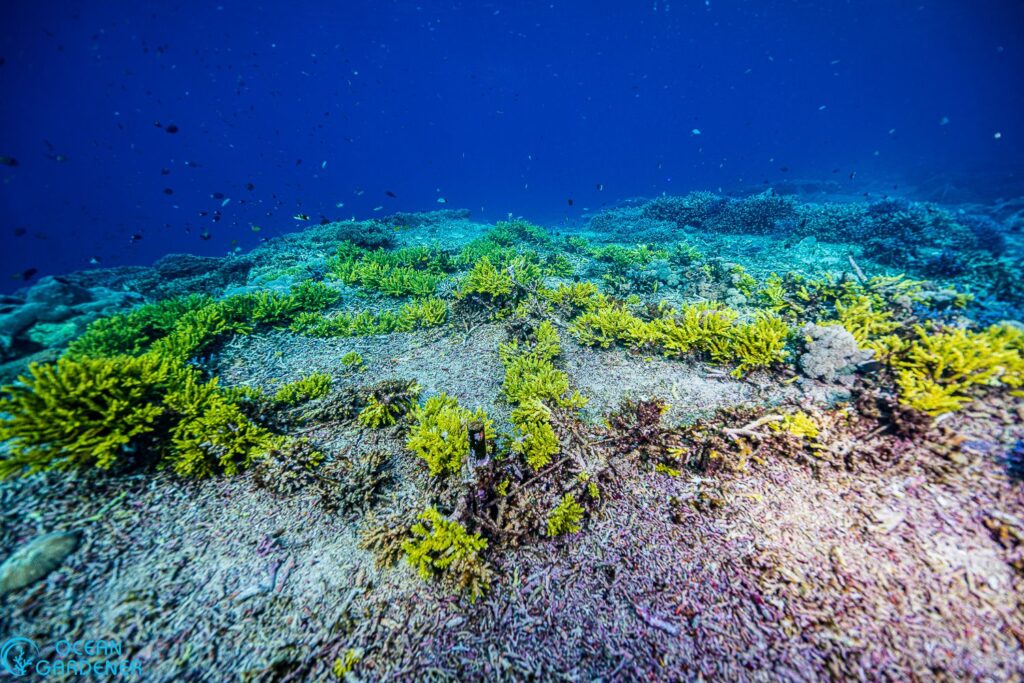
We hope this story reminds everyone, from dive operators to boat crews, from tourists to community leaders, that keeping mooring buoys in the right place is just as important as protecting the iconic species themselves. Without the corals, the manta rays, mola mola and color tropical fish will no longer exist. Without coral reefs, Nusa Penida will never be the same.
We urge the businesses on the Ped coastline to join us in being a community watch for the reefs we worked so hard to bring back. We thank Penida Colada to be a proud supporter of our work. If you see a vessel dropping anchor, parking in the shallows and damaging the coral, please help document it with photo or video evidence and contact us so we may bring it up to the Ped community leaders.
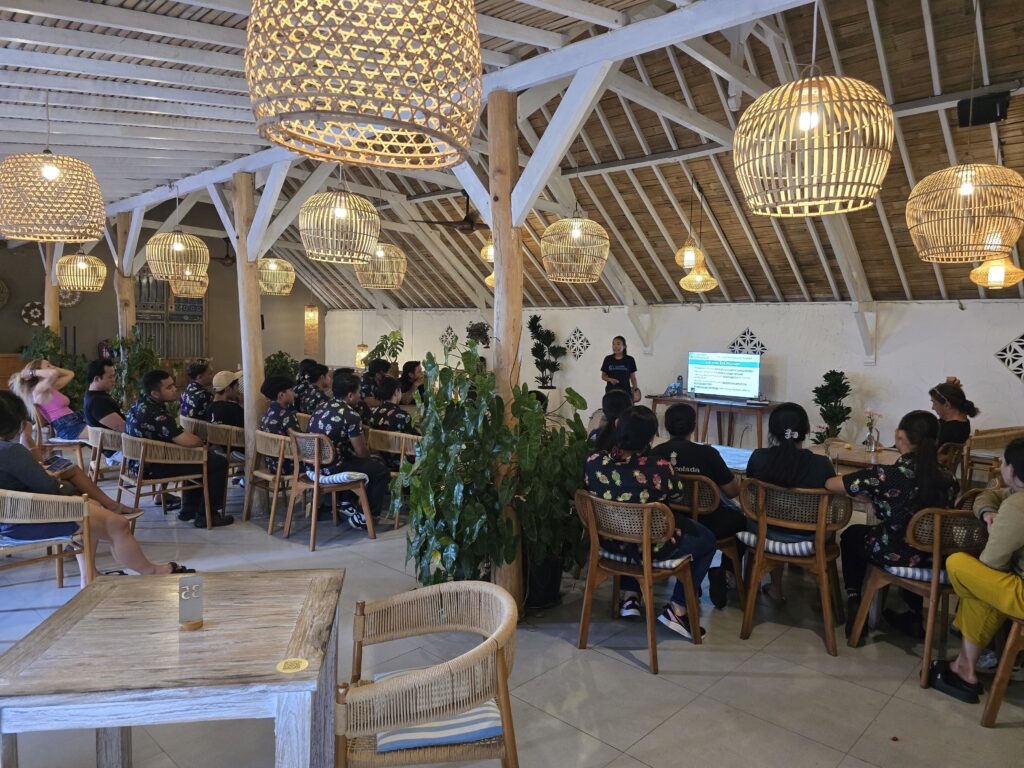
We all have worked so hard to bring back the reefs here in Nusa Penida and it is working. Let’s all be coral guardians for this coastline. It belongs to all of us.
If you are Ped business, contact us and help collaborate in the community watch. Donate to help us plant more corals or sponsor a coral planting for your business.